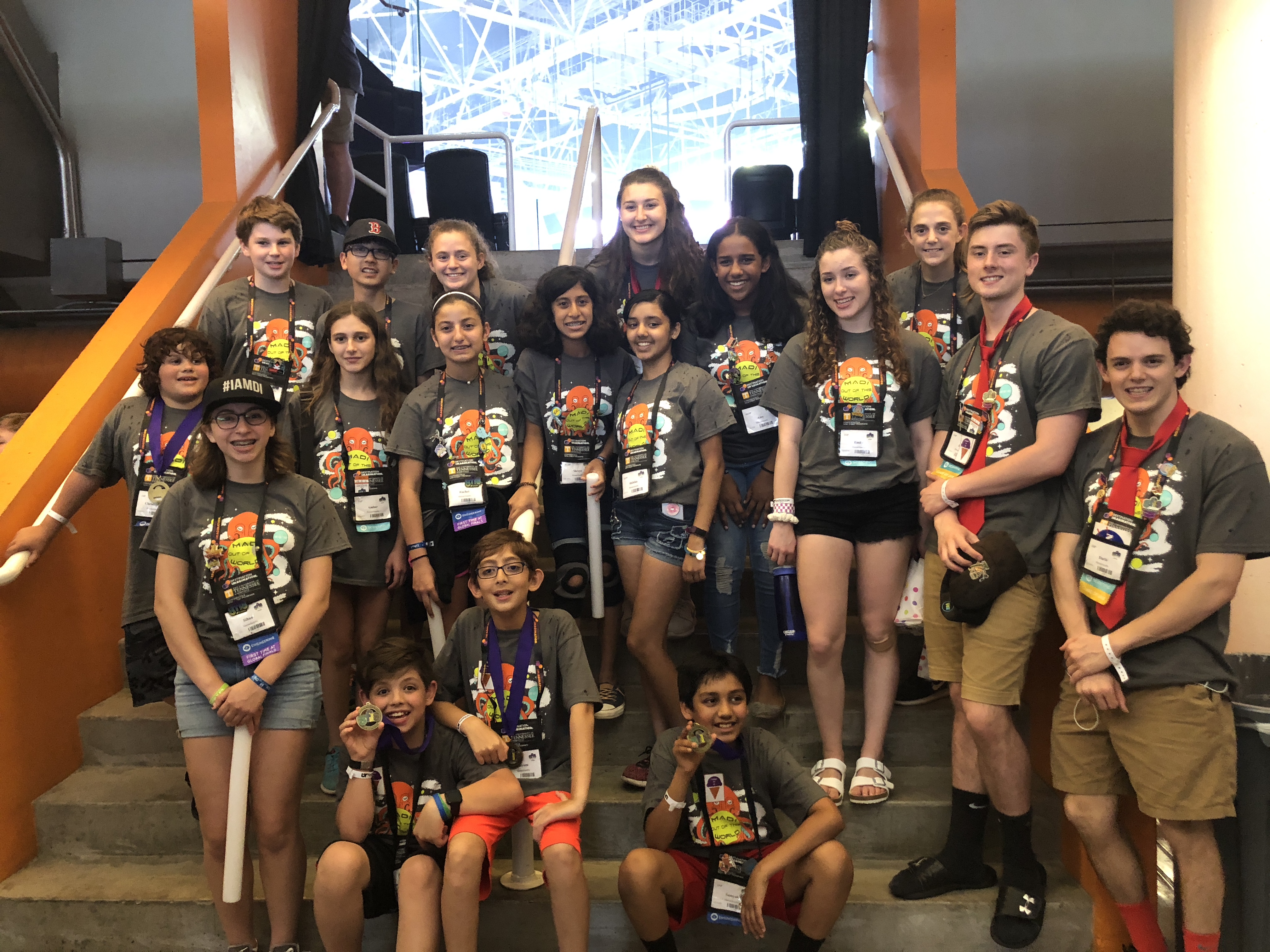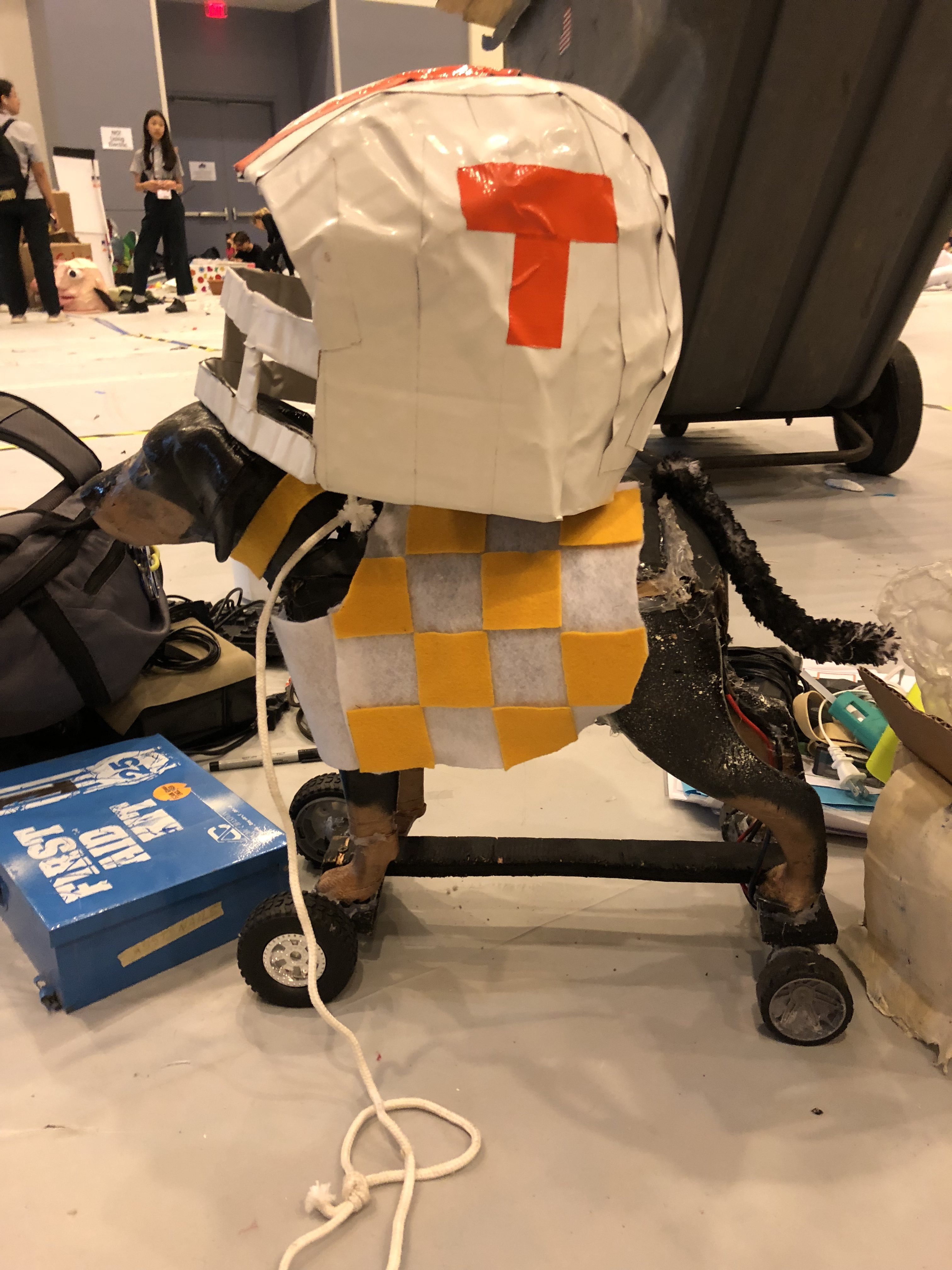FAQ for new managers
See also DI Jargon to become familiar with DI lingo!
Why should I become a Team Manager?
DI is made possible by volunteers. For your children to have the opportunity to participate in DI, we need to have Team Managers and Appraisers. Without these volunteers, children could not participate in this great program.
Coaching a DI team is also a wonderful, rewarding, and sometimes chaotic experience!
“I have been coaching since 2000 and my children involved since 1999 and I LOVE it…I have gotten to know many children well and that statement about “it taking a village” is so true. I have formed life-long bonds with the children I have coached and helped them through many of life’s joys and rough spots OUTSIDE of DI. Plus, for my own kids, we grew closer because we talked about DI outside of meetings and we all understood each other’s passions. Have I wondered if the challenge will get solved or why I volunteered? Yes, but I never regretted one moment of it!” Stephanie, Challenge Me, Inc., Town Coordinator
See managers, including CMI’s vice-president, Ken Matteucci, explain in the video below! Ken and his team appear at 0:49.
What do Team Managers do?
To guide the team, managers:
- Plan and facilitate Team Meetings. Managers read and learn about the Central Challenge and help the children understand the challenge. Team managers cannot solve the challenge for the children or give them hints or ideas to solve the challenge, because that is called Interference, which is strictly forbidden in DI. We will help YOU with this at our TM Orientation! National DI provides a document called a RoadMap to help you guide your team.
- Organize the meetings. Managers plan the activities and the order of the activities (i.e., getting to know you games at the beginning of the year). They communicate with the parents of the children on the team to determine a meeting place, day, and time.
- Provide one or more weekly Instant Challenges (see below) to the children. Many sample ICs and information about our IC Closet are on our Resources page.
- Teach skills to the team that they can use to solve their challenge, or arrange for someone else to do that. If children need to learn a skill (like using some sort of tool, or learning about a scientific concept, or sewing or script writing), the manager can teach the children or find an expert (a parent, friend, colleague, etc.) to teach the children a skill at a team meeting. Teaching children skills is NOT interference unless you say, “I’m teaching you ______ so you should use it in your solution,” or something.
- Help children learn to set priorities, goals and make plans, and motivate them to keep going.
- Communicate with parents about meetings, fees, appraisers (see below), and DI in general. They can organize snacks, but parents can also provide these, and snacks are not required – they just are a nice way for kids to bond!
- Learn about DI. Read our documents, ask questions, and communicate with parents. Keep rules of Non-Interference in mind at all times.
- Supervise the team’s work and keep safety in mind at all times. Safety includes researching safely in books or on the internet, as well as with any tools or materials that the children use.
- Facilitate communication among the team members, including helping them resolve disagreements safely and respectfully.

What is an Instant Challenge?
The Instant Challenge (IC) and the Central (main) Challenge make up the Destination Imagination Program. ICs are short challenges that usually take less than 10 minutes. ICs are designed to teach students to think quickly and flexibly in novel situation, as well as to help them build teamwork and communication skills. ICs are typically either task-based or performance-based. A task-based IC typically provides the children with some materials and asks them to design and build something that meets some criteria. It could be as simple as: use several materials (i.e., paper, straws, paperclips, mailing labels and pipe cleaners) and in 3 minutes, build a tower as tall as it can be. A performance-based IC may ask a team to prepare a 2 minute skit in 3 minutes in which a character is in a particular unusual situation, and then present the skit to the appraisers. A third type of IC is a hybrid IC, in which the team is given materials to build something and then also needs to put on a skit using the item they just built.
Teams usually practice ICs at their meetings. At the Tournament, a team must solve an IC that they have never seen before.
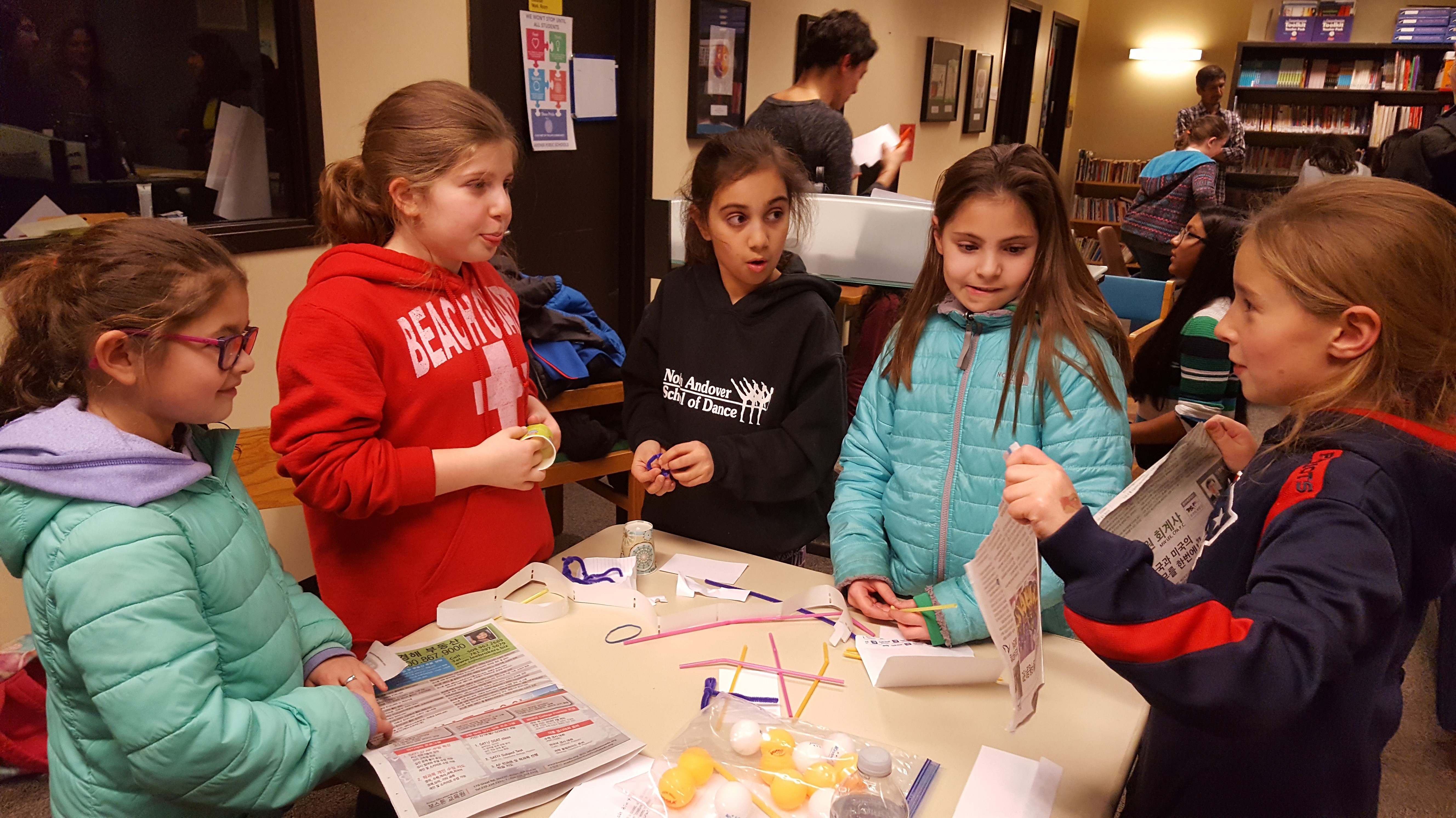
What is interference and how do I avoid it?
DI has a no-interference rule, which states that the team’s entire solution must have come only from the team and the team must have done all the work for the solution themselves. This means that team managers and parents must not provide ideas or suggestions to the team members about how to solve their challenge. DI’s strongest asset is that the children do all the work themselves. While this may lead some managers to go prematurely gray, it ends up being the best thing for the children. They are very proud of their work and learn to take responsibility and pride in their accomplishments.
Adults may teach children any skills they need or to use equipment safely and properly, but they may not tell the children how to make something, design something for them, or do any work for them. Adults may take them to a museum to learn about something, or watch a documentary with them. Adults may do a workshop on a key concept they are learning about, but an adult may not say, “Use this information in your solution.”
However, safety is a priority. If children are doing research on the Internet, an adult may supervise and make sure the sites they visit are age appropriate. An adult may also insist on goggles and other safety equipment. If children need to cut with scissors or box cutters or power tools, an adult may show them how to do that. However, an adult may not make the cuts for them. If the children are not old enough to use the tools safely, then they need to think of another solution.
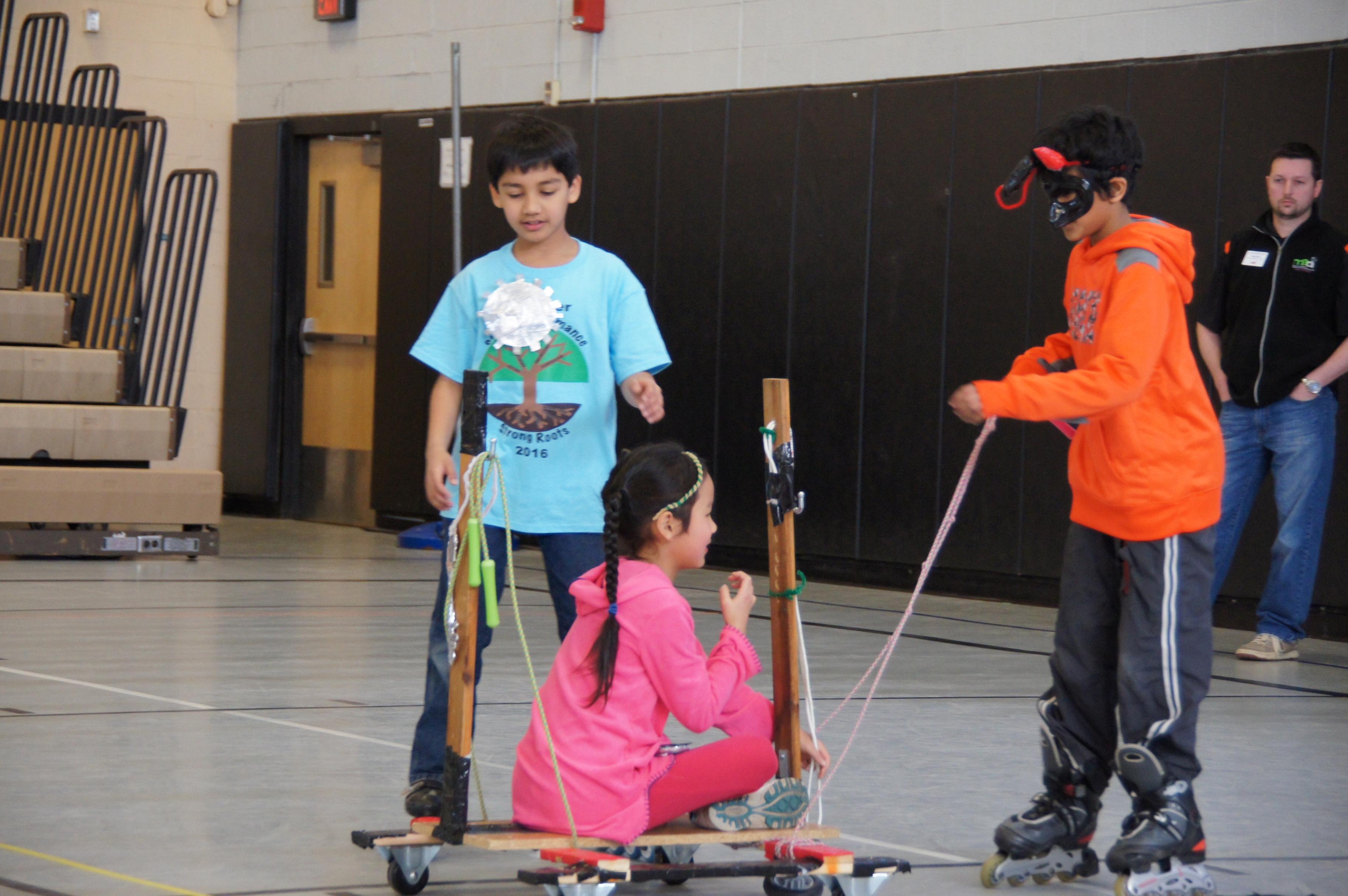
How long are DI meetings?

What is the time commitment for managers?
In the beginning of the season, new managers may also spend 30-60 minutes preparing for each meeting. This may include selecting getting-to-know-you games and planning activities that teach children skills that they may find helpful in solving their challenge.
As the team starts working on their solution, the managers may find that they do not need to prepare as much for meetings, other than ensuring the children have the materials they need. Managers can ask parents to provide and obtain materials; there is no expectation that the managers provide everything!
Managers also usually select and gather the materials for at least one Instant Challenge per week for the team to practice.
2 or 3 adults can also manage one team together. New managers often enjoy managing with a partner so that they can share manager duties and support each other.

Where do teams meet?
Most teams meet in the home of one of the team members. It may be at the team manager’s house, who usually has a child on the team, but the team could meet at any team member’s house. However, teams can meet anywhere they can find space. Some teams meet at a church or at a parent’s office.
Once the team starts building props and scenery, which can be large, most teams find it most convenient to meet at the same place every week so they are not transporting materials and their projects from place to place. If you have a basement or other space where your team can work, then that may be where your team will meet.
A few middle school teams are coached by teachers and meet at school.
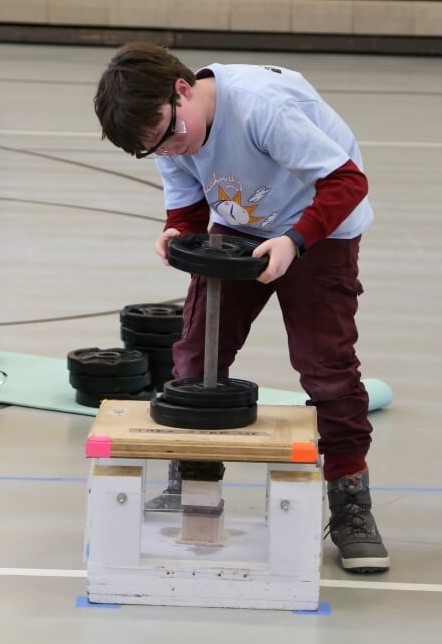
How does Challenge Me, Inc. help managers?
Challenge Me, Inc., Andover’s DI Board, provides as much support as we can to all of our managers.
We try to provide new team managers with experienced team manager mentors and we are here to answer any questions that a manager may have.
We also provide several training sessions for managers and learning opportunities for the children. Dates will be posted at our Calendar when available. These include:
- CMI Team Manager Orientation (usually early November): discuss TM responsibilities, provide tips for managing a team, review the year’s schedule, and go over team registration.
- MADI Team Manager Training run by the MADI State Board (usually November and January): VERY helpful.
- CMI TM Improv Training (November): a workshop for new and experienced Team Managers to learn team bonding activities, ways of stimulating creative thinking, and team management techniques that REALLY work!
- CMI Instant Challenge Swap (early December): Managers bring multiple copies of one Instant Challenge and go home with at least 10 DIFFERENT task based IC’s and an additional 10 DIFFERENT performance ones! Plus we discuss ICs, including how to coach children, tournament procedures for ICs, and we have a team perform an IC for you to appraise.
- CMI Materials Manipulation Workshop for Kids (early January): Children learn different techniques for using materials commonly used in Instant Challenges.
- CMI IC Round Robin (late February): Teams do several ICs under tournament like conditions and receive feedback.
- CMI Team Manager AND Team Member Paperwork workshop (late February/early March): a workshop for team managers and team members to learn techniques for efficiently and effectively filling out Tournament Data Sheets and Expense Reports.
- CMI Whine and Sheesh (early April): end of season debrief for managers.

What are the costs and fees?
There are two fees to participate in DI. CMI charges a $145 registration fee per child. This fee includes:
- Organizational, state, and national team registration fees
- A town T-shirt for the child that is worn at the regional tournament
- Training programs and workshops for both the child DI participants and their managers
There is an additional materials fee that is used to purchase the supplies the team will use to solve their challenge. This fee is determined by and collected by you, the Team Manager. The amount of the materials fee varies and depends on the challenge chosen by the team, the age of the children, the number of the children on the team, and the supplies that the children need for their particular solution. In general, the materials fee ranges from $20-$80/child. Many managers request a certain amount at the beginning of the season, and then may ask for an additional materials fee later in the season if the children use all the supplies in the course of working on their challenge.
Some teams go on field trips to museums or shows to learn about a topic. Those costs are paid by parents.
Please keep in mind that although most challenges have a budget that is specified in the challenge, this budget only accounts for the cost of the materials that are used to make the actual items that the children use in their performance at the tournament. Most teams use additional materials for building prototypes or for trying different ideas that they may not ultimately use in their final solution.
We recommend that managers keep all receipts. If there is money left at the end of the season, you may use it towards a team party or to purchase team photos for the team members at the Tournament. (There is a professional photographer at the tournament; it’s about $10-$12/picture.)
There are additional fees if your team advances to the State Tournament from the Regional Tournament, or to Global Finals from the State Tournament.
Financial assistance is available for children who would otherwise be unable to participate in DI due to financial need. Please see the scholarship application for more information and to apply.
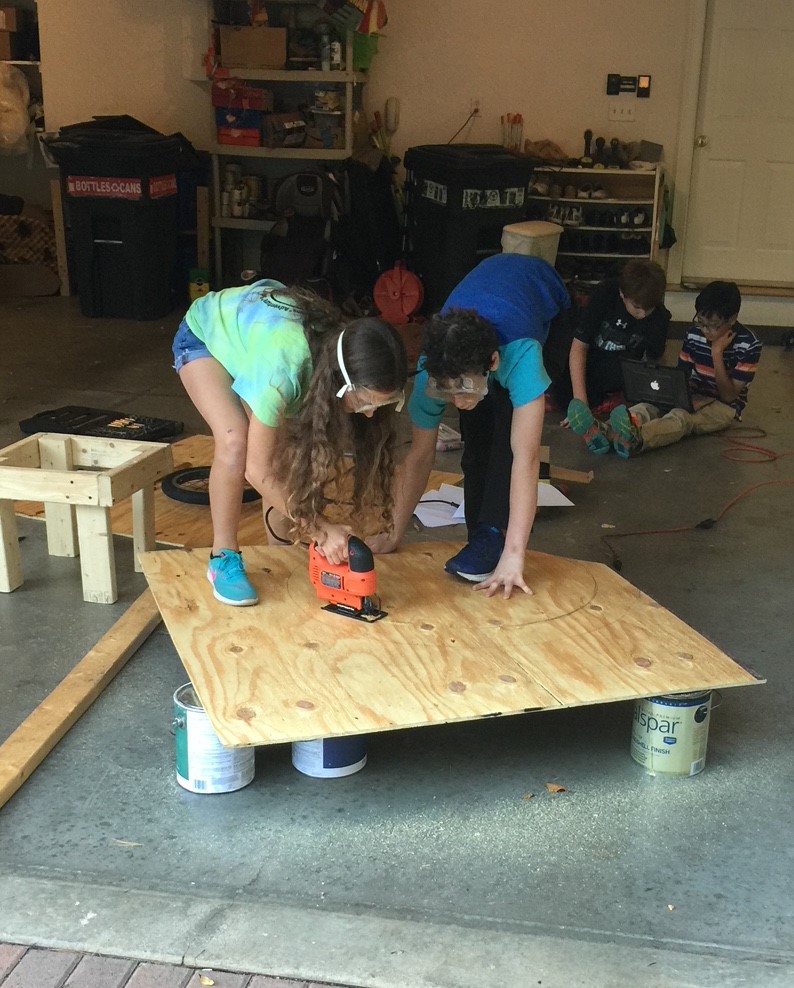
What is an Appraiser and why do I need one?
Appraisers are the volunteers who work at the Tournaments. Volunteer Appraisers are the lifeblood of a DI Tournament. Each Tournament needs about 100 volunteers and appraisers to run smoothly, and to provide the best experience for the kids.
We need the most Appraisers for the Central Challenges, and what Appraisers do is watch all the performances of a specific challenge and score several line items. After each performance, Appraisers talk to the team and ask them how they did things, what they made, what they enjoyed about DI, etc. Then they write compliments to share with the team and record their scores. It’s really fun to see the creativity of all the teams and to watch in awe how each team has a completely different solution for the same challenge! It’s a chance to be entertained and help kids feel more comfortable performing in front of a group and talking extemporaneously about what they created with adults. It’s a huge part of what makes DI so special; kids get to feel comfortable sharing their ideas and accomplishments with caring adults who want to listen to them! There are other appraiser roles that you can read about here.
Every team is required to provide 1 appraiser. The appraiser can volunteer at our Regional Tournament, or they can sign up for another Massachusetts Regional Tournament. Please note that if a parent volunteers to appraise at our Regional tournament, their appraiser duties may not allow you to watch their child’s team perform at our tournament. We strongly recommend that parents who appraise sign up to appraise at a Regional Tournament that takes place on a different day than ours. See Massachusetts Regional Tournament sites and dates here.
Managers help find an appraiser, but they may delegate this responsibility to their parents of their team members. Appraisers are often parents of a child on the team, but can be any adult, including a friend, relative, neighbor, babysitter, or a teacher. Managers are NOT expected to be the appraiser, unless they want to do it and enjoy it. Managers do enough!
There is a $200 fine for teams that do not provide an appraiser. MADI does NOT want the fine; they want the appraisers! Please remember that MADI cannot run tournaments without enough appraisers!
Appraising is a 2 day volunteer commitment: 1 day for training (a weekend day in January or February) and 1 day for the Tournament (a weekend day in March), but it is a lot of fun! It is also a great opportunity to learn more about DI.
If you choose to appraise, please keep in mind that managers CANNOT appraise Instant Challenge or the challenge their team has chosen. Managers may appraise a different challenge.
See how to register as an appraiser here.
We will talk more about appraisers at the New Team Manager meeting.

